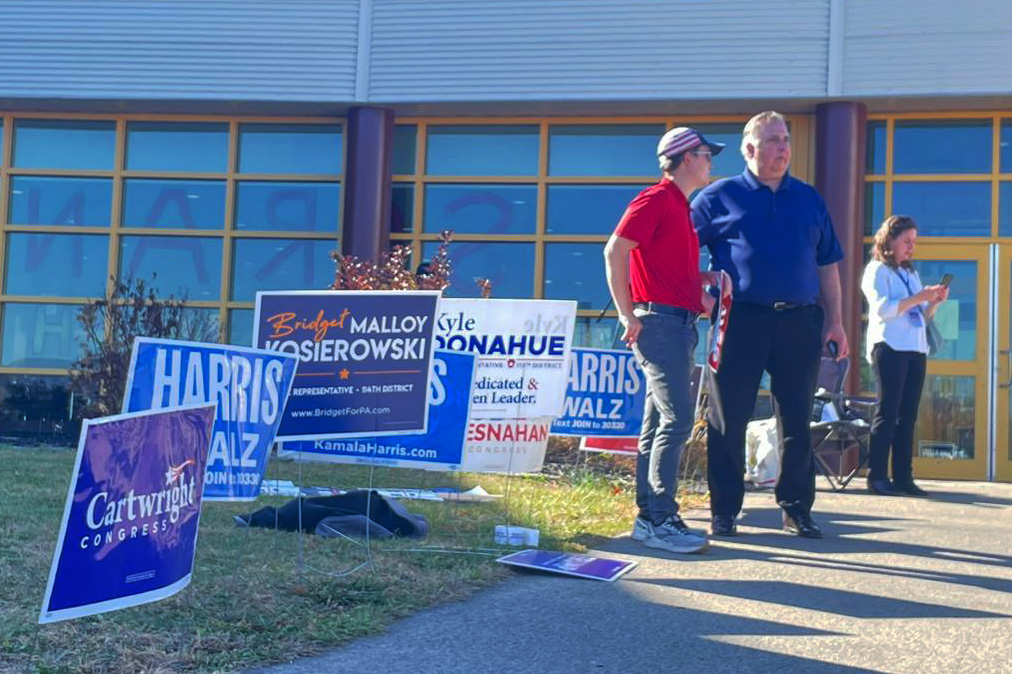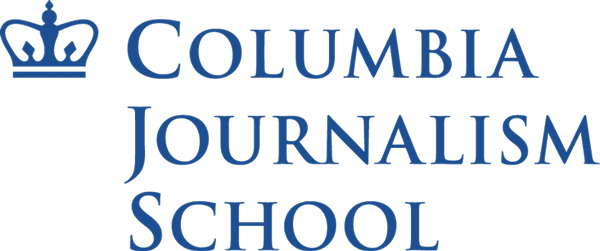 SCRANTON, PA – Election day seemed like a usual quiet workday in this city with a population of 76,000. There was little traffic on the streets. Outside Scranton High School, one of the major polling stations in town, voters come and went one after another.
SCRANTON, PA – Election day seemed like a usual quiet workday in this city with a population of 76,000. There was little traffic on the streets. Outside Scranton High School, one of the major polling stations in town, voters come and went one after another.
Glen Goldstein came from New York at 6:40 am, just before polls opened, to volunteer for the Democratic Party. Harris will surely win New York, he said, so it made more sense for him to help with the campaign in a swing state like Pennsylvania.
His friends texted him earlier to say they were loading up four buses in Manhattan to come to Pennsylvania.
“Scranton is a very blue-collar area,” Goldstein said. “Joe Biden is from here, so that should mean something for Scranton.”
There is a Biden Street, Joe Biden Way and President Biden Expressway.
Goldstein stood next to a life-size cardboard picture of Kamala Harris, and people repeatedly stopped to take selfies with the candidate’s likeness. He handed them cards that encouraged them to energize their friends.
“Forward your photo right now to all your friends,” the cards read, “and remind them to vote too.”
Pennsylvania has 19 electoral votes. It is the most electoral votes of any swing state and is often referred to as the most valuable battleground state in the Electoral College. The state voted Democrat in the 6 elections prior to 2016. In the election that year, Trump won by 0.7%. In 2020 Biden took the state, winning by 1.2%.
In a small town like Scranton, even people from the same ethnic group or who live under the same roof might differ in their voting and rationale.
 Phyllis Reinhardt (pictured above), an 85-year-old veteran who voted for Harris, grew up in Wisconsin and married a fellow Air Force serviceman. When she took the oath of service, she believed it was a lifelong commitment to protect the Constitution and the country.
Phyllis Reinhardt (pictured above), an 85-year-old veteran who voted for Harris, grew up in Wisconsin and married a fellow Air Force serviceman. When she took the oath of service, she believed it was a lifelong commitment to protect the Constitution and the country.
Voting for Harris was an easy decision, Reinhardt said. She believes Harris could potentially restore democracy in the United States.
Her son holds a starkly different political view.
“My son probably voted for the traitor,” Reinhardt remarked.
Trump’s attempt to overturn the 2020 election was a betrayal of his oath of office, Reinhardt said, an act of treason, especially in the eyes of those with military backgrounds.
She feels strongly that the government should work in partnership with businesses to strengthen the economy, with the role of government being as vital as the free market itself. She tends to support candidates who prioritize education.
A Chinese-American student, Miss Zhao, currently studying medical sciences at Geisinger Commonwealth School of Medicine, voted for Harris, prioritizing women’s reproductive rights.
“I feel that with the candidate I chose, women’s rights are more likely to be protected,” Zhao explained. “With Trump, I see more unpredictable outcomes. In terms of character, I lean more toward Kamala. Trump’s behavior has often been rash, erratic and sometimes blatantly racist.”
International relations are also part of the consideration, she added.
“Generally, I feel that Democrats have maintained more amicable relationships with other countries,” Zhao said, “though that’s not my main reason for voting.”
Zhao’s political views differ from those of her immigrant parents.
“I think our votes are pretty split,” Zhao said. “Surprisingly, I don’t think my parents are fond of Trump as a person, but they lean toward him because of his tax and fiscal policies. So, I believe they’ll be voting for him this year.”
She added that they try to keep politics out of the household.
“We do discuss our reasons for voting a certain way,” Zhao said, “but we’re both pretty firm in our views.”
Goldstein said he misses the days when people argued but they remained friends. Politics should have the spirit of sportsmanship, he added.
“Americans are crazy about sports,” Goldstein said. “You shake the other person’s hand. You say, ‘Yeah, I lost. You won. Maybe next time, I’ll win.’”
About the author(s)

Shalina Xufang Cao
Shalina Xufang Cao is a student in the M.A politics program at Columbia Graduate School of Journalism. She is a TV reporter covering China, Eastern Asian and international affairs.

Olivia Ndubuisi
Olivia Ndubuisi is in the MA Science and Politics concentration at Columbia Journalism School. She was previously at the BBC looking after anglophone West Africa commissions.

Songjie Liu
Songjie Liu is a visiting scholar at Columbia Journalism School. Liu was previously a journalist at Phoenix Weekly, and Washington Post Beijing Bureau.



